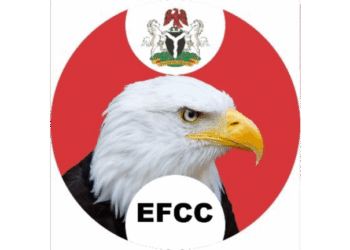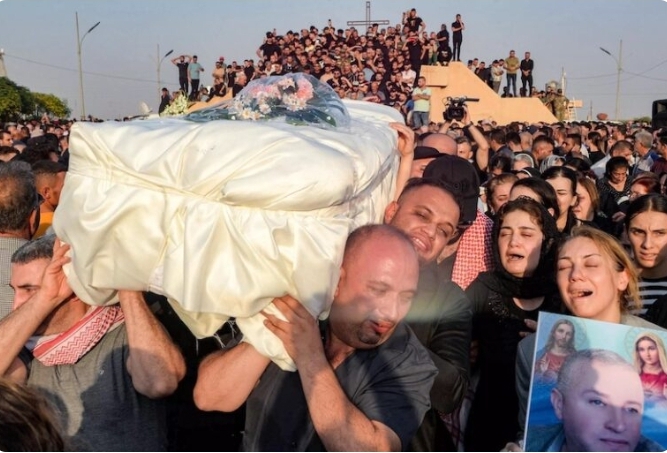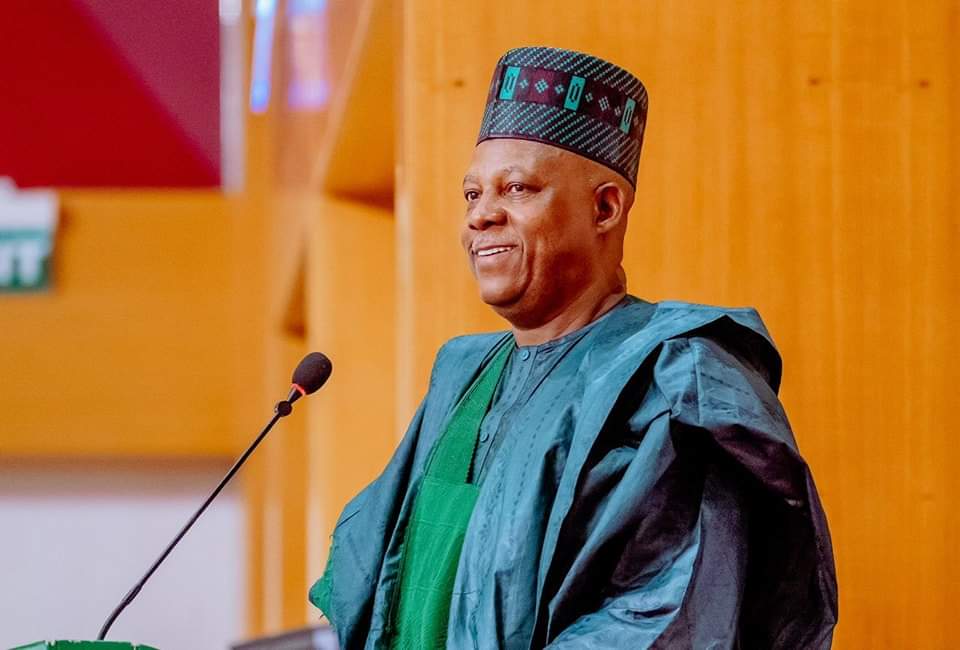By Suleiman Abba
Crass political opportunism refers to the practice of politicians exploiting situations solely for personal gain or benefit, without genuine concern for the well-being of the people they are supposed to represent. It can manifest in various ways, such as making empty promises during election campaigns or capitalizing on crises to gain political advantage. This behaviour undermines the democratic principles of transparency, honesty, and genuine public service. Instead of focusing on addressing the needs of the people, crass political opportunists prioritize advancing personal ambitions or agendas, eroding public trust in politicians and creating cynicism among voters.
An accurate personification of crass political opportunism is when the Governor of Zamfara State, Dauda Lawal chose to abdicate his primary responsibilities and absconded on the very day the campus of the Federal University Gusau was brutally attacked and dozens of female students abducted.
This action and other unexplained aspects of the Governor’s arrogance in going ahead with his US trip despite and in spite of the circumstances of fear in which innocent students entrusted in his care found themselves. The first aspect is that there is incontrovertible evidence that the the Governor was in Abuja all the time the attack was taking place but left for New York four hours later. Sufficient proof exists that the attackers left the campus around 4am and Lawal flew out at 8am exactly four afterwards.
Another suspicious development is that for the last six days since the incident and Lawal’s abdication, the federal government and federal security agencies have been making efforts to link up with the Zamfara government but they avoided their moves. For instance the Defence Minister and other Defence Chiefs have variously called the Deputy Governor in the absence of his principal, but he declined all the calls.
Again, in the rare occasions when officials were able to link up with the Governor, from the US, he arrogantly told them to wait for his return. These circumstances have been breeding serious suspicions and perhaps justifiable too, that there is some form of a hidden agenda and collaboration with the bandits which informs the Zamfara government’s desperation to frustrate intervention efforts no matter how sincere, genuine and legitimate.
Natuarally, and by default, this brazen abdication by Governor Lawal created a sense of abandonment and amplified the vulnerabilities already faced by the people of the state. His apparent failure to remain close to the people he leads, especially during such times of dire distress, by staying away for several days afterwards, made the situation incredibly disappointing and disheartening.
In such times, the natural and legitimate expectation is for the Governor to cancel whatever trip it was, return to base immediately to provide support and guidance as his absence can leave the distressed people of the state vulnerable and uncertain about the future.
It is expected that during those challenging times, Governor Lawal should have remained close to the people who, just a few months ago, trusted him to lead them through and out of their limitations around security and the economy.
He was expected to have demonstrated a commitment and dedication to the well-being of the people considering that the role of a leader is not only to make decisions and govern, but also to empathize with the struggles and concerns of his people. In times of distress, it is crucial for a leader to be present, both physically and emotionally, to offer reassurance and comfort.
Effective leadership requires a deep understanding of the needs and realities of the people being led. It means recognizing the importance of being actively engaged, even when faced with difficulties. It is his duty to prioritize the needs of the people who voted him to power and provide the necessary support, even if it means personal sacrifice.
Naturally, when he chose to stay away during auch times of distress, it not only erodeed the people’s trust and faith in his leadership, but it also raised questions about his priorities and motives because by neglecting this responsibility, Lawal risks exacerbating the people’s vulnerabilities and undermining the trust and confidence placed in them.
Responsible leadership, not the type Lawal provides in Zamfara State, is all about being present and supportive, especially in the face of adversity. If Governor Lawal were a responsible and effective leader, he would have understood the significance of staying connected to the people he leads, particularly during times of crisis by being physically present and leading from the front to inspire and motivate them, boost morale and foster a sense of unity.
By every rule of decency a leader who remains present during moments of crisis, demonstrates the commitment to the well-being and success of his people. This demonstration of solidarity goes a long way in building trust and loyalty among those being leads. By standing alongside their people, which Lawal evidently failed to do, leaders show that they are not just making decisions from a distance but are actively involved in the challenges the people face.
Furthermore, leaders who lead from the front set an example for their followers. They exemplify the values and qualities they expect from their followers, showing that they are not just giving orders but are willing to take risks and face the difficulties themselves.
By being on the ground, Lawal could have had the opportunity to assess the situation first-hand, make informed decisions, and provide immediate feedback. This hands-on approach would have ensured that, as a leader, he has a comprehensive understanding of the challenges faced by the people and can respond effectively.
There is no denying that it is highly irresponsible for Governor Lawal to distance himself from his people for this long especially in the aftermath of a tragic event such as the forceful abduction of students of a higher institution who are the natural and legitimate claimants to the task of shaping the society. Lawal’s primary responsibility is to ensure the welfare and safety of their constituents. When they choose to remain disconnected in times of crisis like this one, it can have severe repercussions on both the affected individuals and the overall moral fabric of society.
In times of tragedy, people look to their leaders for guidance, support, and reassurance. They need someone to step up and take charge, providing a sense of unity and direction. His physical presence, empathetic gestures, and words of consolation could have gone a long way in fostering hope, healing, and rebuilding efforts.
By staying away from the people he is meant to serve, Lawal not only abandoned his duties but also confirmed the long-held fears that he is detached and unconcerned, an action that is already breeding feelings of resentment, mistrust, and disillusionment among the Zamfara citizens, weakening the bond between his government and the society he represents.
Moreover, his absence during those times of crisis can have practical implications. He has may missed out on valuable firsthand information about the situation on the ground, making it difficult for him to make informed decisions and take necessary actions. This lack of involvement had slowed down emergency response efforts, exacerbated the suffering of those affected, and hindered the process of recovery of the abducted students.
A leader’s commitment to the people should be unwavering, especially during difficult times. Responsible leaders strive to be present, visible, and engaged, working side by side with their citizens to address the challenges at hand. This proactive approach not only helps in solving immediate problems but also instills a sense of trust and confidence in the leadership that can be essential for long-term stability and progress.
Bad leaders like Governor Lawal on the other hand, can be personified as a dark cloud looming over the community they lead, spreading an aura of uncertainty and fear. Leaders like Lawal possess a volatile temperament, prone to sudden outbursts and erratic behaviour that creates a constant sense of unease. Their vision and goals are often unclear, causing confusion and a lack of direction amongst their followers.
They exhibit a lack of empathy, disregarding the needs and opinions of their team members. Self-centered and egotistical, they prioritize their own interests over the well-being of others. Their communication style is abrasive and dismissive, leaving their subordinates feeling devalued and demotivated.
Like a stagnant pond, a bad leader fails to foster growth and development within the society. They discourage new ideas, discourage innovation, and resist change, stifling the potential of those they lead.
Furthermore, a bad leader is not accountable for his own mistakes, instead shifting blame onto others the way Lawal attempted to shift blames onto the Federal Government. They lack transparency and integrity, making it difficult to trust their judgment and decisions.
Like Lawal, all bad leaders can be personified as an oppressive force, casting a dark shadow over the society. They possess characteristics such as volatility, lack of empathy, unclear vision, and poor communication, hindering the growth and success of those they lead. Leaders are expected to face challenges head-on, confront threats, and find ways to address them proactively. Running from threats may temporarily alleviate immediate pressure, but it ultimately undermines the trust and confidence of both the state and stakeholders.
By avoiding the immediate threats in the state he leads, Lawal has missed an opportunity to demonstrate courage, resilience, and problem-solving skills. Threats and challenges present valuable opportunities for growth and innovation. Leaders who embrace and navigate through these difficult situations inspire their teams, build trust, and foster a culture of resilience and adaptability. Running from threats also hampers the development of effective strategies and solutions. Without facing challenges directly, leaders may fail to understand the root causes of issues or overlook potential opportunities for improvement.
This avoidance can lead to a reactive rather than proactive approach, which often results in poor decision-making and missed opportunities for growth. In its present state, Zamfara needs strong leaders who can provide clarity, direction, and stability in times of crisis. By avoiding threats, Lawal has undermined his own credibility and the confidence of those he leads. Gouging from Dauda Lawal’s actions, voters in Zamfara State must have learnt the necessity to scrutinize the actions of politicians and hold them accountable for their behaviour in the future.
By demanding integrity, adherence to ethical standards, and a genuine dedication to public service, Zamfara voters can discourage such crass political opportunism and promote politicians who prioritize ther well-being.











